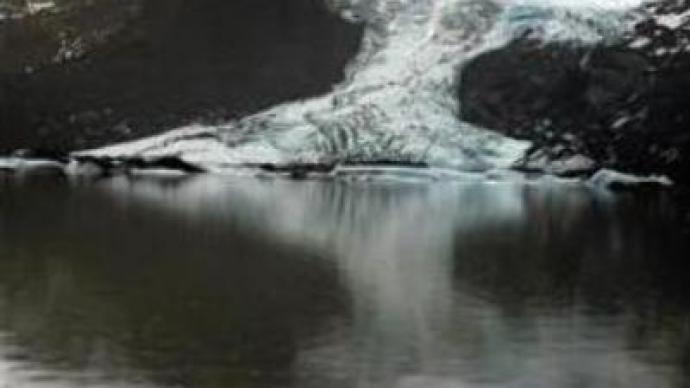Ice melting hot issue for UN

It is World Environment Day, and the UN is highlighting the impact of global warming with this year's theme “Melting ice – a hot topic”. It is releasing a report on the impact climate change is having on the world's frozen
15% of the world is covered by ice and snow, glaciers, permafrost and frozen lakes. It all plays a critical role in regulating the world's weather, sea level and ocean currents, in ecosystem and wildlife habitats, and as a vast store of fresh water. The polar ice sheets hold about 99 percent of the world's freshwater ice. In its report, UNEP wants to draw attention to the impact that climate change is having on some of the world's most vulnerable regions. The report says the annual shrinking of the Greenland Ice Sheet has doubled in the 1990s and may have doubled again by 2005. Melting ice sheets are having global repercussions by raising sea levels and endangering hundreds of millions of people living on coasts and small islands. Melting of sea ice at current rates could lead to the Arctic Ocean being ice-free in summer, by the end of the century. According to the American scientists, four fifths of the ice cap of Mount Kilimanjaro, which is nearly 6,000 meters at its peak and is Africa's highest, has been lost since 1912. Scientists insist that the ice on top of the mountain is melting, but nobody really knows why.From Kilimanjaro to the Arctic, the United Nation's Environmental Programme (UNEP) says the world's ice and snow is shrinking, and it is mainly due to global warming.“How hot does it have to get before the governments of the world actually find the act on dealing with climate change?” Nick Nuttall, UNEP spokesperson, wonders. “So, the theme is about climate change, the theme is really the theme of 2007 because the dynamism, the momentum on looking for solution to this challenge of our generation is really driving forward and we hope that the World Environment Day will oil the wheels even more.”Although the UN admits its report could be seen as apocalyptic, it hopes that by raising public interest, things can be done to avert catastrophe.
You can share this story on social media:












